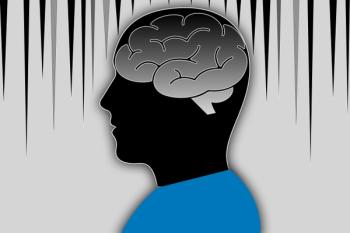It is not new for viruses to have both mental and physical health consequences. The HIV epidemic is a notable example in recent times, with 38 million individuals currently living with the virus and an estimated 35 million who have died from AIDS-related illnesses.1 As many as half of people living with HIV have at least 1 mental health comorbidity.2 Today, after more than a year since the pandemic started, the magnitude of the public health impact of the current COVID-19 crisis is not yet fully appreciated, but it will be significant, with more than 171 million cases and 3.5 million deaths and counting globally at the time of this writing.3
The effects of COVID-19 are expected to last for a long time, with evidence for persistent and/or delayed significant symptoms beyond 4 weeks from the onset of acute illness.4 It has been observed that as many as three-fourths of patients hospitalized with COVID-19 had at least 1 ongoing symptom 6 months after acute illness,5 and 30% of patients, even those with mild illness, have reported persistent symptoms for as long as 9 months.6 These long-term consequences include mental health issues, with 1 in 3 COVID-19 survivors having persistent neurological and/or psychiatric consequences.7
This recognized phase of prolonged illness, referred to by a variety of names including long COVID-19, long-haul COVID-19, and postacute COVID-19, has been recently designated by the National Institutes of Health as post-acute sequelae of SARS-CoV-2 infection (PASC).8
The Multifactorial Consequences of PASC
Although COVID-19 had initially been most notorious for causing respiratory pathology, with the most vulnerable patients progressing to acute respiratory failure,9 its extrapulmonary manifestations are now known to be prominent.10 PASC is viewed as a multisystem disease with an underlying etiology still to be determined but possibly involving dysregulated immune response, inflammation, microvascular thrombosis, and/or cellular damage from the virus.4 Although variable in presentation, PASC most commonly involves a constellation of symptoms (Table).4,11 The symptoms of PASC range from mild to disabling with significant effects on quality of life, even in patients whose acute course of illness was mild or who were previously healthy and active.4,11
We have much to learn about PASC, due to the multiorgan system effects and the heterogeneity of symptoms in patients who survived COVID-19. Beth Israel Deaconess Medical Center, a patient care, teaching, and research affiliate of Harvard Medical School in Boston, has recently launched the Critical Illness and COVID-19 Survivorship Program. The program aims to integrate care among pulmonary, critical care, sleep medicine, psychiatry, cognitive neurology, neurology, geriatrics, social work, and physical and occupational therapy clinicians. Although the cases differ, 3 deidentified vignettes demonstrate the core themes for patients presenting with PASC who are referred to psychiatry through the new program.
Vignette 1
“Alma,” a woman aged 45 years, presents with a history of hypertension and a 4-week intensive care unit (ICU) stay due to acute respiratory failure, prolonged intubation, and paralysis after contracting COVID-19. Alma’s ICU stay was complicated by a course of delirium. She had been discharged home from a rehabilitation center more than 6 months prior to her appointment.
She has been referred for ongoing symptoms of posttraumatic stress disorder (PTSD) related to her ICU stay, significantly impaired sleep, and depressed mood. Additionally, Alma continues to struggle with ongoing memory and focus concerns, shortness of breath, and difficulty with weakness. Her cognitive and physical symptoms have improved, but they remain impairing.
The Mental Health Impacts of ICU Admissions
Prior to the COVID-19 pandemic, it had been increasingly recognized that survivors of ICU admissions commonly experience long-term physical, psychological, and cognitive impairments that adversely impact their quality of life.12 This group of multisystem impairments is referred to as post-intensive care syndrome (PICS). More than 50% of survivors of acute respiratory syndrome suffer from at least 1 feature of PICS a year after their ICU stay.12 More specifically, depression, anxiety, and PTSD are well characterized and persistent manifestations of PICS.13 The differences in characterization and etiologies between PICS and the independent influence of COVID-19 is not yet understood.
Vignette 2
After contracting COVID-19, “John,” a man aged 70 years with a history of asthma, obstructive sleep apnea, diabetes, and major depression, was hospitalized for 4 days due to low oxygen levels, which required treatment with steroids.
John presents 3 months after hospitalization with worsening depression, insomnia, breathlessness, and related anxiety. His mood is also influenced by frustration with obstacles in restarting home health services. Due to a lack of assistance, it has been difficult for John to keep up with his many follow-up appointments or go to the pharmacy to pick up medications and other medical supplies. He reports being quite lonely and has not seen his out-of-state family for many months.
Identifying Predisposing Risk Factors for PASC
The outcomes for an individual after contracting COVID-19 will depend not only on the direct influence of the virus, but also on predisposing risk factors (ie, preexisting health conditions, socioeconomic factors), the way their body responds to fighting off the virus (immune activation and/or dysregulation), and iatrogenic complications (ie, adverse effects of such medications as steroids and sedatives; hospital-acquired infections). Additionally, issues arise related to recovering from the virus, which include the onus of having been ill, concern about infecting loved ones, and obstacles in having day-to-day needs met. The significant disruptions in life due to the pandemic, impacting ability to obtain care for health conditions or engage in preventative care, also are likely to play a role in health outcomes.14 Furthermore, social isolation and loneliness are important risk factors and drive negative health outcomes, especially in older adults.15
Vignette 3
“Susan” is a woman, aged 40 years, with a prior episode of major depression that had been in remission and mild attention-deficit symptoms that had been well controlled. She presents more than 7 months after contracting COVID-19.
During her acute course, she struggled with fever, cough, headache, shortness of breath, fatigue, and anosmia. Susan was evaluated in the emergency department due to the severity of her symptoms, but she did not require hospitalization. She has had persistent symptoms of breathlessness, profound fatigue, difficulty with concentration and memory, insomnia, and difficulty performing the duties of her job, which she has held for many years. She is referred for growing depression and feelings of hopelessness.
Symptoms of Lower Severity, but High Persistence
This clinical presentation—a patient who is younger, previously healthy, with milder acute COVID-19 symptoms and persistently impairing symptoms longitudinally—is often referred to as long COVID-19. Earlier in the pandemic, this clinical presentation was not fully recognized and, indeed, sometimes ignored or discounted.16
Long COVID-19 challenges clinicians more than ever to listen to patients and break down the false dichotomy between mental and physical health. The experience of feeling trivialized and frustrated by an overemphasis on the psychological components of illness has been shared by survivors of prior coronavirus epidemics such as severe acute respiratory syndrome (SARS) in early 2000s and Middle East Respiratory Syndrome in 2012.17 It also has been a common experience in patients diagnosed with myalgic encephalomyelitis/chronic fatigue syndrome (ME/CFS), a complex and disabling illness with features that overlap those of long COVID-19.18
The presentation of neuropsychiatric symptoms after COVID-19 are heterogeneous, and to some extent they may reflect variable and multifactorial causes. The either/or characterizations of symptoms by patients, clinicians, and society alike of psychogenic vs organic, psychological vs physiological, functional vs neurological, are all overly simplified and represent antiquated views of the brain-body connection.19,20 Breaking down long-standing silos in health care through the use of integrated multidisciplinary teams will be critical to finding more effective treatments. Bridging this divide is urgent, not only to understand and treat the consequences of this pandemic, but also to face the longstanding issue of mental health stigmatization that serves as an enduring barrier to patients seeking care for their mental health.21 Patients with PASC are at risk of mental health consequences, whether it be from the direct consequence of the virus, indirect consequences of quarantine and the pandemic, exacerbation of preexisting conditions, and/or ongoing challenges of coping with a new, poorly understood, chronic illness.
Issues to Consider in Treatment and Recovery
Many patients slowly recover with supportive measures and symptomatic treatment.11 Much of the initial recovery recommendations focus on physical rehabilitation and support. There are not yet formalized standards of care in treatment of depression and other mental health concerns in PASC. Notably, some patients with PASC may struggle with symptoms of dysautonomia such as persistent tachycardia and/or vulnerability to orthostasis, which may diminish tolerability to some psychotropic medications.4
A number of patients with long COVID-19, similar to patients with ME/CFS, have postexertional fatigue.22 Therefore, pushing themselves to exercise beyond an identified energy envelope may be counterproductive and, in fact, propagate crash-and-burn cycles.22 For that reason, care must be taken in suggesting exercise, an otherwise recommended lifestyle intervention for improving stress, depression, cognition, and insomnia.
In addition to our standard treatments for depression, anxiety, and PTSD, there are some emerging areas of interest. Breathing exercises have been a recommendation of post–COVID-19 clinics and have benefited patients who have persistent feelings of breathlessness. STASIS, a breathing program, is available online and has been utilized by patients with long COVID-19.23 Respiratory rehabilitation has been suggested, especially when complemented by traditional Chinese medicine approaches (ie, tai chi, qigong) that combine conscious breathing in coordination with body movement.24
Bhramari pranayama, a form of yoga that combines breathing with humming, has also been recommended, not only because it can be calming, but because it may enhance nitric oxide expression.25 Mind-body interventions have long been compelling for patients with ME/CFS, but heterogeneity in studies and small sample sizes limit our evidence base.26 There are not yet systematic studies of mind-body interventions in PASC. Of note, tai chi provided some relief for survivors of SARS when they did not find adequate support from standard health care.27
App-based tracking of symptoms has been an important element in the fight against COVID-19.28 The COVID Symptom Study captures and analyzes daily symptom tracking in millions of app users in the United States and United Kingdom.29 It recently provided insight into long COVID-19, identifying the strongest predictor for ongoing illness as having 5 or more symptoms within the first week of illness.29 In the future, apps are likely to play an important role in complementing mental health treatment, allowing for real-time measurement-based care, shared decision-making, and enhanced therapeutic alliances.30
Concluding Thoughts
We are only just beginning to understand COVID-19 and its consequences. It will take multiyear studies to elucidate long-term sequelae and to understand how to best help patients. Also, this virus has further elucidated the inequities in our society and in health care.31 Although this has been a time of tribulation, it is also a time that presents an opportunity to understand the trajectory of biological, psychological, and socioeconomic outcomes that will allow us to move toward eroding the stagnancy of mind-body dualism and breaking down siloed care. It also presents the opportunity to find more satisfying outcomes and improved quality of life for those with chronic illnesses.
Dr LaSalvia is a geriatric psychiatrist at Beth Israel Deaconess Medical Center (BIDMC) and an instructor at Harvard Medical School. She is the consulting psychiatrist for the BIDMC Critical Illness and COVID-19 Survivorship Program. al Dr Keshavan is Stanley Cobb Professor and Academic Head of Psychiatry at Beth Israel Medical Center and Harvard Medical School.
References
1. Global statistics. HIV.gov. Updated November 25, 2020. Accessed May 24, 2021. https://www.hiv.gov/hiv-basics/overview/data-and-trends/global-statistics
2. Yehia BR, Stephens-Shield AJ, Momplaisir F, et al. Health outcomes of HIV-infected people with mental illness. AIDS Behav. 2015;19(8):1491-1500.
3. Dong E, Du H, Gardner L. An interactive web-based dashboard to track COVID-19 in real time. Lancet Infect Dis. 2020;20(5):533-534.
4. Nalbandian A, Sehgal K, Gupta A, et al. Post-acute COVID-19 syndrome. Nat Med. 2021;27(4):601-615.
5. Huang C, Huang L, Wang Y, et al. 6-month consequences of COVID-19 in patients discharged from hospital: a cohort study. Lancet. 2021;397(10270):220-232.
6. Logue JK, Franko NM, McCulloch DJ, et al. Sequelae in adults at 6 months after COVID-19 infection. JAMA Netw Open. 2021;4(2):e210830.
7. Taquet M, Geddes JR, Husain M, Luciano S, Harrison PJ. 6-month neurological and psychiatric outcomes in 236 379 survivors of COVID-19: a retrospective cohort study using electronic health records. Lancet Psychiatry. 2021;8(5):416-427.
8. Collins FS. NIH launches new initiative to study ‘long COVID.’ National Institutes of Health. February 23, 2021. Accessed May 24, 2021. https://www.nih.gov/about-nih/who-we-are/nih-director/statements/nih-launches-new-initiative-study-long-covid
9. Huang C, Wang Y, Li X, et al. Clinical features of patients infected with 2019 novel coronavirus in Wuhan, China. Lancet. 2020;395(10223):497-506.
10. Gupta A, Madhavan MV, Sehgal K, et al. Extrapulmonary manifestations of COVID-19. Nat Med. 2020;26(7):1017-1032.
11. Greenhalgh T, Knight M, A’Court C, Buxton M, Husain L. Management of post-acute Covid-19 in primary care. BMJ. 2020;370:m3026.
12. Marra A, Pandharipande PP, Girard TD, et al. Co-occurrence of post-intensive care syndrome problems among 406 survivors of critical illness. Crit Care Med. 2018;46(9):1393-1401.
13. Wang S, Allen D, Kheir YN, et al. Aging and post-intensive care syndrome: a critical need for geriatric psychiatry. Am J Geriatr Psychiatry. 2018;26(2):212-221.
14. Wright A, Salazar A, Mirica M, et al. The invisible epidemic: neglected chronic disease management during COVID-19. J Gen Intern Med. 2020;35(9):2816-2817.
15. Donovan NJ, Blazer D. Social isolation and loneliness in older adults: review and commentary of a national academies report. Am J Geriatr Psychiatry. 2020;28(12):1233-1244.
16. Ladds E, Rushforth A, Wieringa S, et al. Persistent symptoms after Covid-19: qualitative study of 114 “long Covid” patients and draft quality principles for services. BMC Health Serv Res. 2020;20(1):1144.
17. Rogers JP, Chesney E, Oliver D, et al. Psychiatric and neuropsychiatric presentations associated with severe coronavirus infections: a systematic review and meta-analysis with comparison to the COVID-19 pandemic. Lancet Psychiatry. 2020;7(7):611-627.
18. McManimen S, McClellan D, Stoothoff J, et al. Dismissing chronic illness: a qualitative analysis of negative health care experiences. Health Care Women Int. 2019;40(3):241-258.
19. Perez DL, Keshavan MS, Scharf JM, et al. Bridging the great divide: what can neurology learn from psychiatry? J Neuropsychiatry Clin Neurosci. 2018;30(4):271-278.
20. Keshavan MS, Price BH, Martin JB. The convergence of neurology and psychiatry: the importance of cross-disciplinary education. JAMA. 2020;324(6):554-555.
21. The Lancet. The health crisis of mental health stigma. Lancet. 2016;387(10023):1027.
22. Myalgic encephalomyelitis/chronic fatigue syndrome: treatment of ME/CFS. CDC. January 28, 2021. Accessed May 24, 2021. https://www.cdc.gov/me-cfs/treatment/index.html
23. O’Rourke M. Unlocking the mysteries of long COVID. The Atlantic. March 8, 2021. Accessed May 24, 2021. https://www.theatlantic.com/magazine/archive/2021/04/unlocking-the-mysteries-of-long-covid/618076/
24. Zhao H-M, Xie Y-X, Wang C; Chinese Association of Rehabilitation Medicine; Respiratory Rehabilitation Committee of Chinese Association of Rehabilitation Medicine; Cardiopulmonary Rehabilitation Group of Chinese Society of Physical Medicine and Rehabilitation. Recommendations for respiratory rehabilitation in adults with coronavirus disease 2019. Chin Med J (Engl). 2020;133(13):1595-1602.
25. Taneja MK. Modified Bhramari pranayama in Covid 19 infection. Indian J Otolaryngol Head Neck Surg. 2020;72(3):395-397.
26. Courtois I, Cools F, Calsius J. Effectiveness of body awareness interventions in fibromyalgia and chronic fatigue syndrome: a systematic review and meta-analysis. J Bodyw Mov Ther. 2015;19(1):35-56.
27. Siu JY-M. Coping with future epidemics: tai chi practice as an overcoming strategy used by survivors of severe acute respiratory syndrome (SARS) in post-SARS Hong Kong. Health Expect. 2016;19(3):762-772.
28. Collins F. Predicting ‘long COVID syndrome’ with help of a smartphone app. NIH Director’s Blog. March 23, 2021. https://directorsblog.nih.gov/2021/03/23/predicting-long-covid-syndrome-with-help-of-a-smartphone-app/
29. Sudre CH, Murray B, Varsavsky T, et al. Attributes and predictors of long COVID. Nat Med. 2021;27(4):626-631.
30. Rodriguez-Villa E, Rauseo-Ricupero N, Camacho E, et al. The digital clinic: implementing technology and augmenting care for mental health. Gen Hosp Psychiatry. 2020;66:59-66.
31. Ferrarelli F, Keshavan MS. The COVID pandemic and the endemic disparities in care across race for psychotic disorders. Schizophr Res. 2020;223:75-76. ❒








